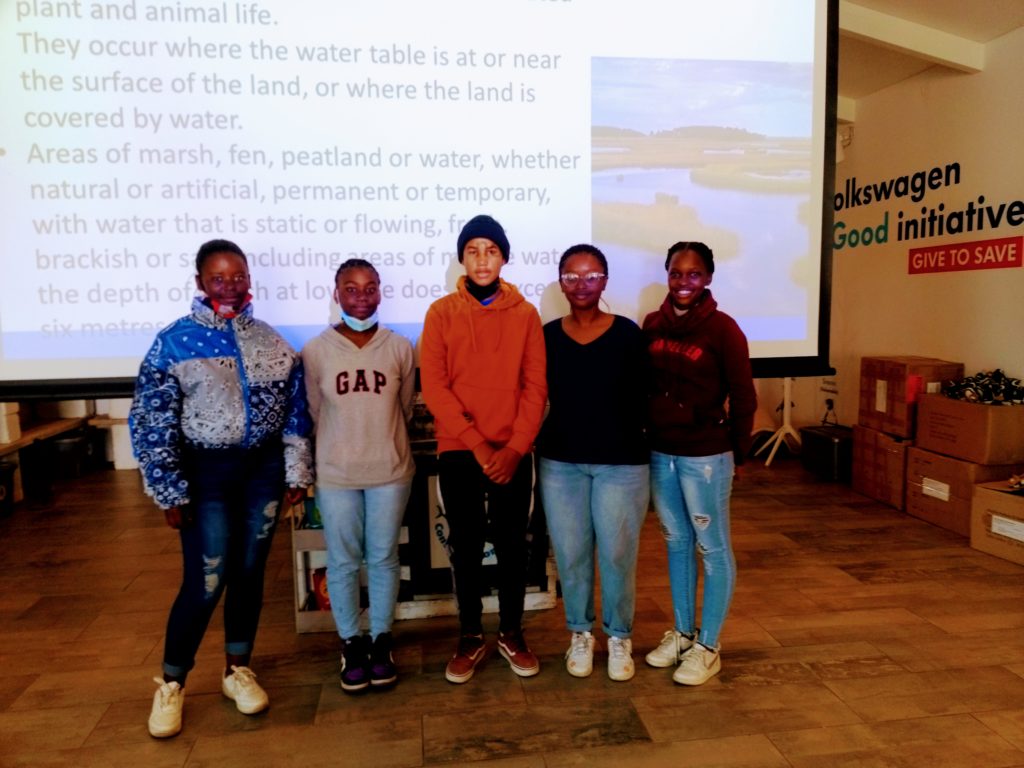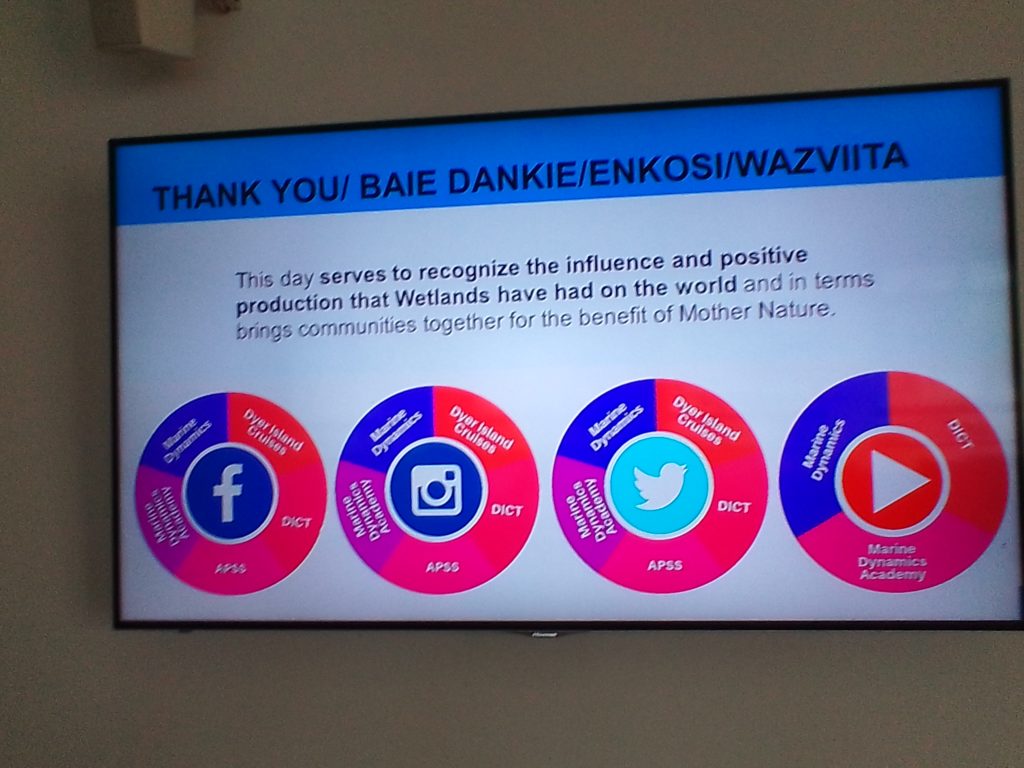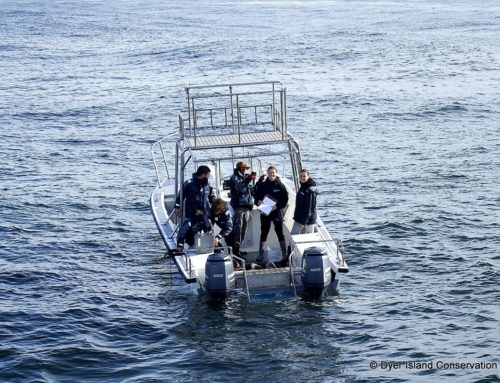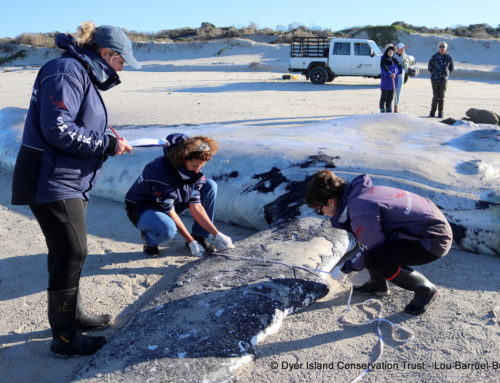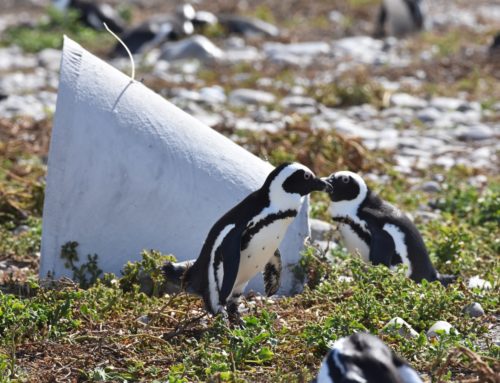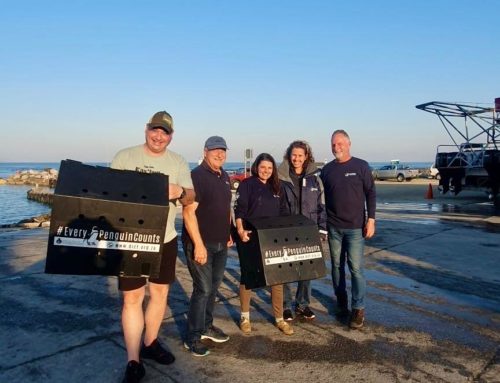For the first time, the United Nations has declared World Wetlands Day on 2 February 2022 a United Nations International environmental day. Started in 1971 by a group of environmentalists, this acknowledgement lends further support in highlighting the importance of actions that ensure the conservation of wetlands as well as the sustainable use of wetlands for humans and planetary health. The theme for 2022 is Wetlands Action for People and Nature, and makes an appeal to the world to invest financial, human and political capital to save the world’s wetlands from disappearing and to restore those that have been degraded.
Dyer Island Conservation Trust’s educator, Pinkey Ngewu, brought together the young graduate learners of the Environmental Education Programme– the DEEP Blue Marine Club. The learners, having studied more about the importance of wetlands shared invaluable messaging:
“Wetlands are among the world’s most productive environments; cradles of biological diversity that provide the water and productivity upon which countless species of plants and animals depend for survival,” explains one of the students.
“The ability of wetlands to adapt to changing conditions, and to accelerating rates of change, will be crucial to human communities and wildlife everywhere as the full impact of climate change on our ecosystem lifelines is felt”, says another learner.
“Wetlands are important, and sometimes essential, for the health, welfare and safety of people who live in or near them. They are amongst the world’s most productive environments and provide a wide array of benefits”, says another learner.
Whilst flooding does occur, so do droughts and South Africa is considered a water scarce country, with water sources further impacted by pollution. Wetlands play a vital role by removing toxic substances and sediments from the water, while also improving downstream water quality and the overall health of communities. They help to purify water and provide habitat for many different plants and animals. Wetlands are able to reduce the severity of droughts and floods by regulating stream flow. Besides these indirect benefits to society, wetlands provide many direct benefits in the form of resources such as reeds as well as recreational opportunities. However, a lack of community awareness on the value and benefits of wetlands often leads to their destructive transformation by humans.
Wetlands provide tremendous economic benefits such as:
- water supply
- fisheries (over two thirds of the world’s fish harvest is linked to the health of coastal and inland wetland areas which act as fish nurseries)
- support to agriculture, through the maintenance of water tables and nutrient retention in floodplains
- wildlife resources
- transport
- recreation and tourism opportunities
In addition, wetlands have special attributes as part of the cultural heritage of humanity in that they are related to religious and cosmological beliefs; constitute a source of aesthetic inspiration; provide wildlife sanctuaries; and form the basis of important local traditions. These functions, values and attributes can only be maintained if the ecological processes of wetlands are allowed to continue functioning.
“Unfortunately, and in spite of important progress made in recent decades, wetlands continue to be among the world’s most threatened ecosystems, owing mainly to ongoing drainage, conversion, pollution, and over-exploitation of their resources”, says Ngewu. “One of our key wetlands in Gansbaai is the Uilenkraal estuary system The Dyer Island Conservation Trust is a partner to CapeNature who manages the Uilenkraal estuary system as part of the Western Cape Government efforts to preserve these critical water systems. Since 2018 the Trust has done weekly environmental monitoring, complemented by bird counts, that will contribute to the understanding and management of the Uilenkraal ecosystem. We encourage people to visit their nearby wetlands and take action where required, in partnership with the managing authorities. Perhaps a clean-up or removal of alien vegetation, or lobbying for better protection”
The Dyer Island Conservation Trust’s Environmental Education Programme, known as DEEP, works with dedicated groups of young learners from Masakhane Primary School in Gansbaai, Western Cape, South Africa. The programme runs for three years to monitor and evaluate the impact and growth of each learner and aims to expose these young learners to the field of marine science and conservation and serve as a forerunner for future skills training. Graduated learners remain in a Marine Club to support their journey through high school and they mentor the younger groups. https://dict.org.za/dict-projects/education/
 Yamkela Tshontshi explaining how we can protect wetlands
Yamkela Tshontshi explaining how we can protect wetlands
 Group discussion
Group discussion
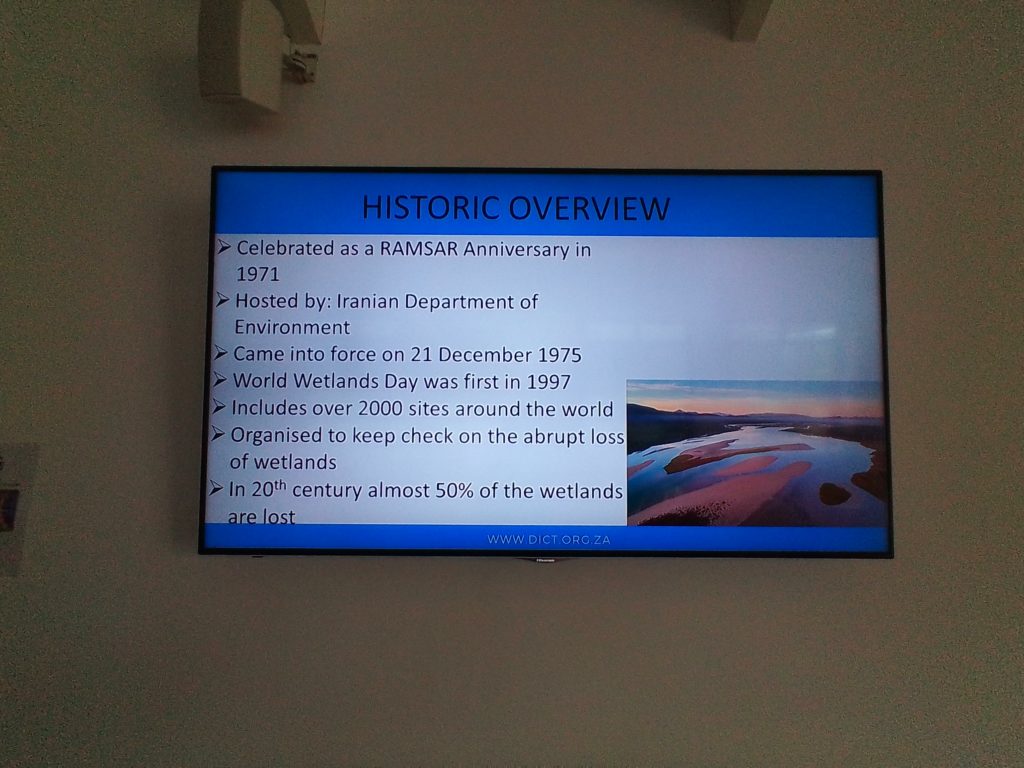 Wetlands overview
Wetlands overview
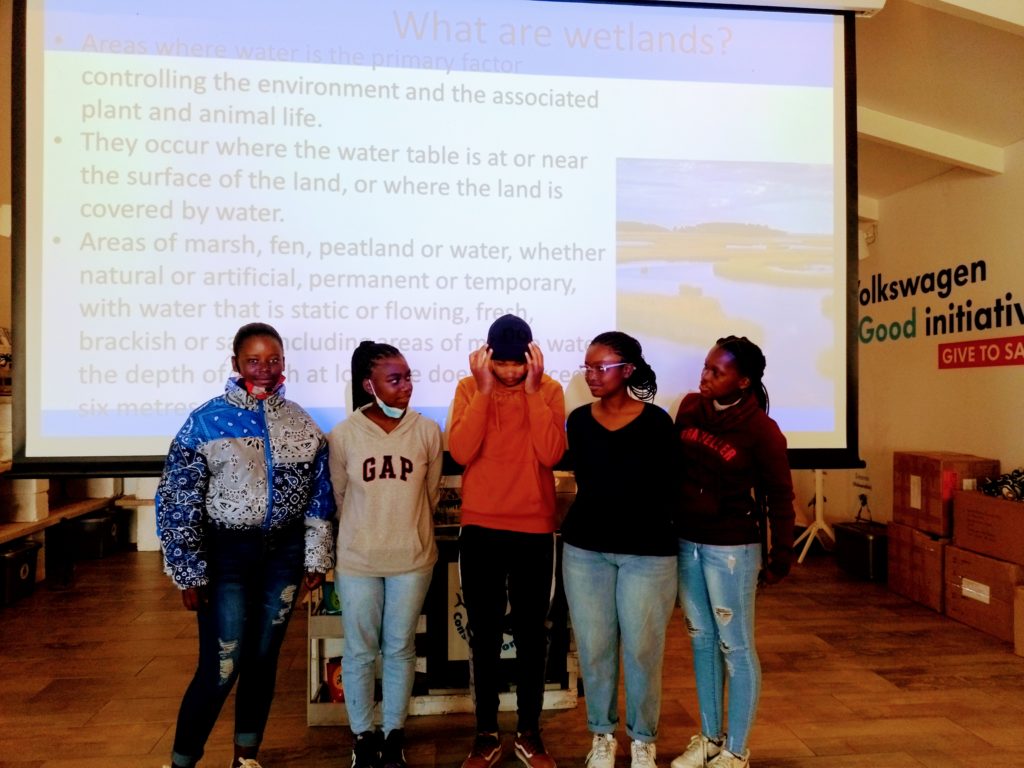 DEEP Marine Club
DEEP Marine Club
